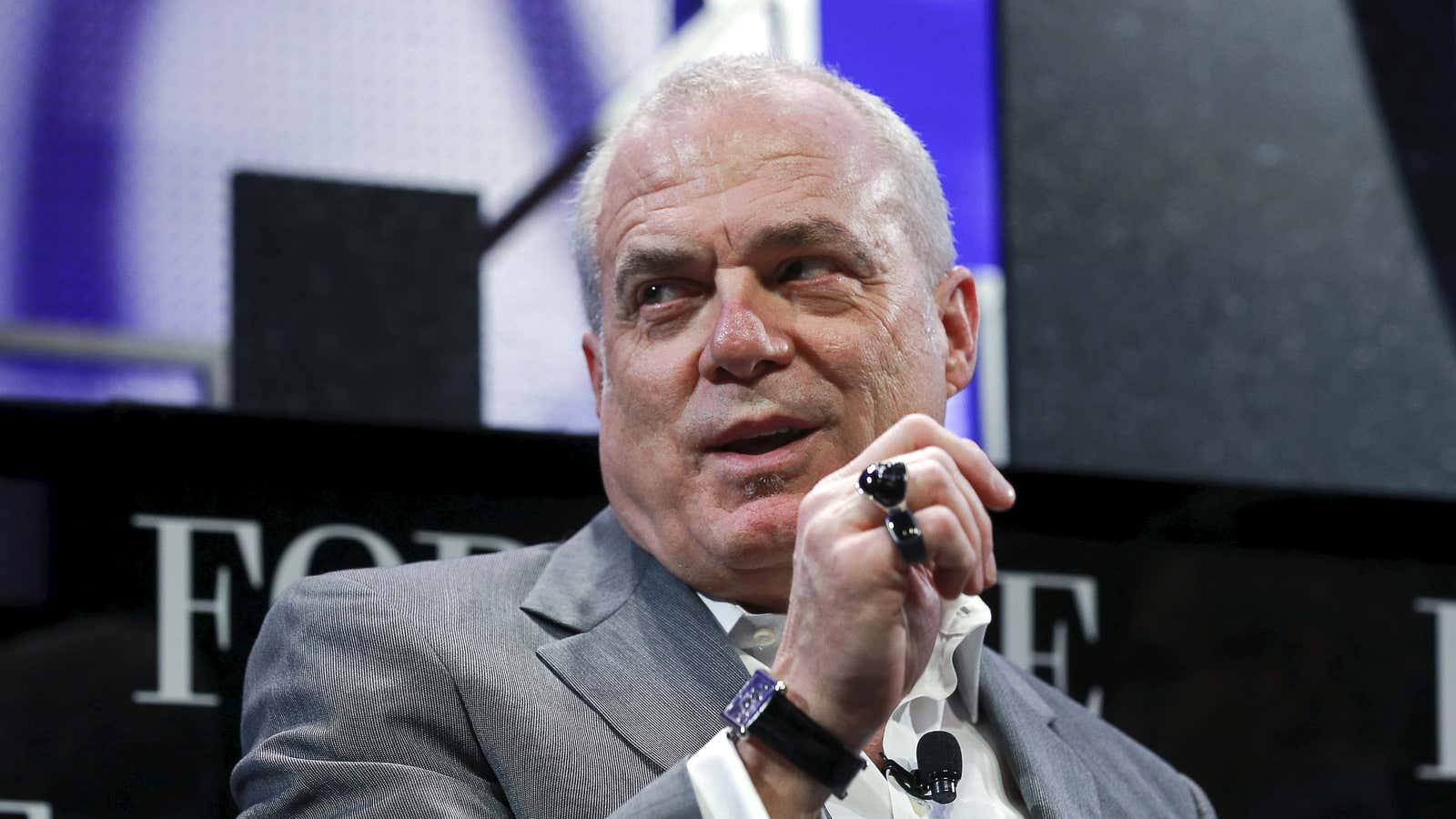Aetna, the major insurer who announced it will leave most of the subsidized health care exchanges created by the 2010 Affordable Care Act, finds itself in a tight spot.
The company has emphasized the decision to abandon Obamacare was purely driven by the exchanges’ tough business climate. Critics say that the company is retaliating against the government because the Department of Justice is fighting a proposed merger between Aetna, the country’s third-largest insurer, and Humana, the fifth-largest.
A company spokesman denied that participation in the exchanges was a bargaining chip in its negotiations with the DOJ, saying the decision was driven by losses.
But the Huffington Post has obtained a letter (pdf) sent by Aetna CEO Mark Bertolini to the Department of Justice that makes clear that the exchanges were very much under discussion.
[W]e believe it is very likely that we would need to leave the public exchange business entirely and plan for additional business efficiencies should our deal ultimately be blocked. By contrast, if the deal proceeds without the diverted time and energy associated with litigation, we would explore how to devote a portion of the additional synergies (which are larger than we had planned for when announcing the deal) to supporting even more public exchange coverage over the next few years.
So is this about losses or a merger battle—is this a confessional, or extortion? The answer is, both. It may in fact be true that Aetna can’t envision a way to make a profit in the exchanges without merging with Humana, even if it is true that its losses didn’t prevent it from seeing its earnings increase 20% in 2015. Aetna executives surely knew that government anti-trust lawyers would see the risk to Obamacare, both political and existential, posed in its letter, even if it their concerns were entirely sincere.
These kinds of negotiations are a necessary consequence of broad government efforts to provide health care to all Americans through what is essentially a public-private partnership model. Its shortcomings have attracted ire from the right, unhappy that the government is influencing any business decision, and from the left, where politicians like Bernie Sanders are seizing the opportunity to call for a public insurance option for all Americans.
